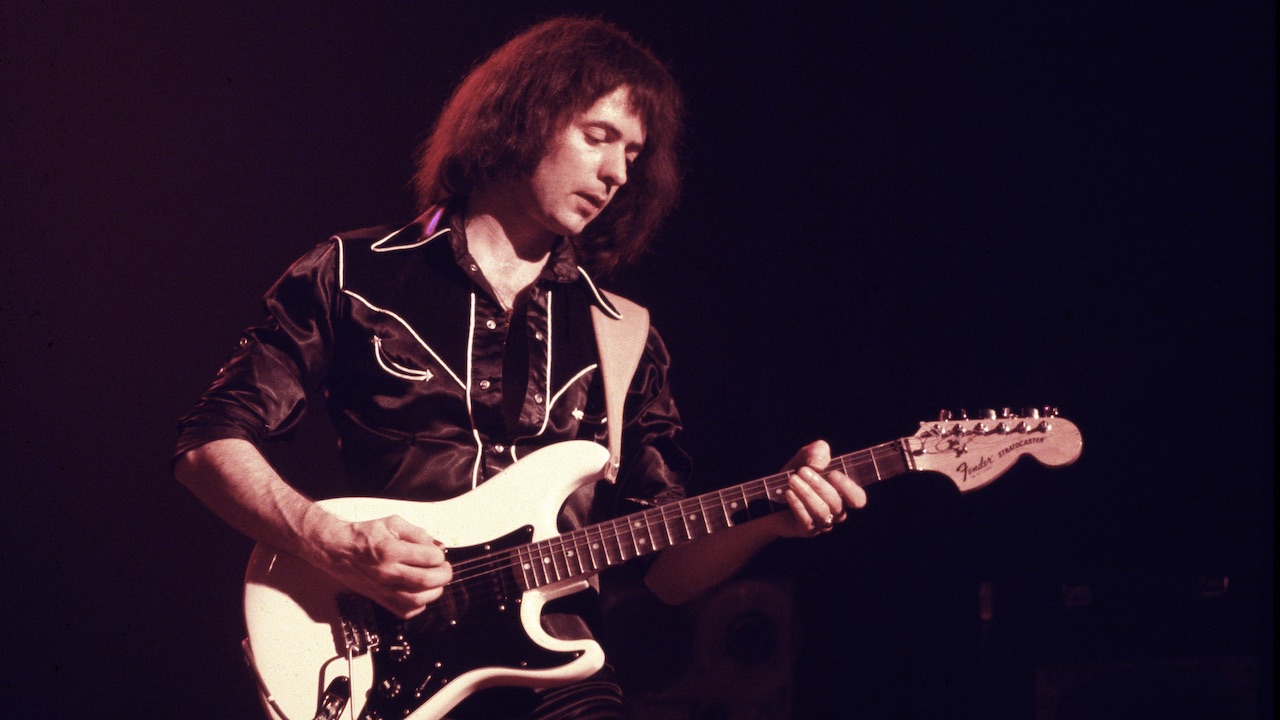“80 per cent of the people I meet are very boring people.” In 1975, Deep Purple's Ritchie Blackmore named his favourite guitarist, and shared his brutally honest thoughts on the '70s music scene
In a typically forthright 1975 interview, Ritchie Blackmore offered his thoughts on the music business, and his peers

“There are people around that give rock 'n'roll a bad name. I listen to the radio and sometimes hear things that are just awful.”
In March 1975, Deep Purple's Ritchie Blackmore was chosen as the first artist to be featured on the cover of the first issue of a brand new music magazine: International Musician and Recording World. “This is a magazine for professionals” ran the opening line of the magazine's first editorial, and the choice of Blackmore as its first cover star was presumably intended to illustrate to prospective readers that this was a serious publication distinct from the likes of NME, Sounds, Melody Maker, etc,. The quote above doubtless had the editorial team rubbing their hands with glee.
The cover story interview was conducted by American writer/producer/guitarist Jon Tiven, who hailed Blackmore as “perhaps the world's finest electric guitar player”. The Man In Black told Tiven that he was “a musician, not a politician”, and duly offered up his typically honest and forthright opinions on the mid '70s music scene, and some of his most influential peers.
“When you travel and you've been in the business so long, you have an awareness of certain people's aura, and how they are as people, and what they mean,” he remarked at one point. I tend to analyse a person in a couple of seconds, and say to myself, 'I don't want to talk to him because I think he's a very boring person.' So I gave them the cold shoulder, and they look at me and see I'm very serious and cold, and they leave me alone. It makes me very happy, really, because I don't want to talk to these people. 80 per cent of the people I meet are very boring people.”
Assessing some of his peers, Blackmore confessed that he “wasn't struck” on Led Zeppelin's Jimmy Page, and admitted “I never saw what was in Clapton at all.” In a comment presumably intended as a compliment, but which came across as a sideways swipe at the 'Clapton Is God' brigade, he added, “He's a good singer.” The Who's Pete Townshend was labelled 'The Establishment', though Blackmore added, “Townshend is not so much of a guitarist as an all-round guy - writer, all that.”
The Deep Purple man nominated Jeff Beck as his favourite guitarist, “a very natural guitar player”.
He noted: “Being a guitarist, I obviously know a lot of tricks of the trade, but whenever I watch Beck I think, How the hell is he doing that? Echoes suddenly come from nowhere; he can play a very quiet passage with no sustain, and in the next second suddenly race up the fingerboard with all this sustain coming out. He seems to have sustain completely at his fingertips, yet he doesn't have it all the time, only when he wants it.”
“After you've been playing a certain amount of time, it's nice to be able to think about the guitar, and I know he does, by the choice of notes he plays. Some guitarists only play what the hands want to play, they don't play what the head wants to play... your head should tell your hands where to go.”
Sign up below to get the latest from Classic Rock, plus exclusive special offers, direct to your inbox!

A music writer since 1993, formerly Editor of Kerrang! and Planet Rock magazine (RIP), Paul Brannigan is a Contributing Editor to Louder. Having previously written books on Lemmy, Dave Grohl (the Sunday Times best-seller This Is A Call) and Metallica (Birth School Metallica Death, co-authored with Ian Winwood), his Eddie Van Halen biography (Eruption in the UK, Unchained in the US) emerged in 2021. He has written for Rolling Stone, Mojo and Q, hung out with Fugazi at Dischord House, flown on Ozzy Osbourne's private jet, played Angus Young's Gibson SG, and interviewed everyone from Aerosmith and Beastie Boys to Young Gods and ZZ Top. Born in the North of Ireland, Brannigan lives in North London and supports The Arsenal.
